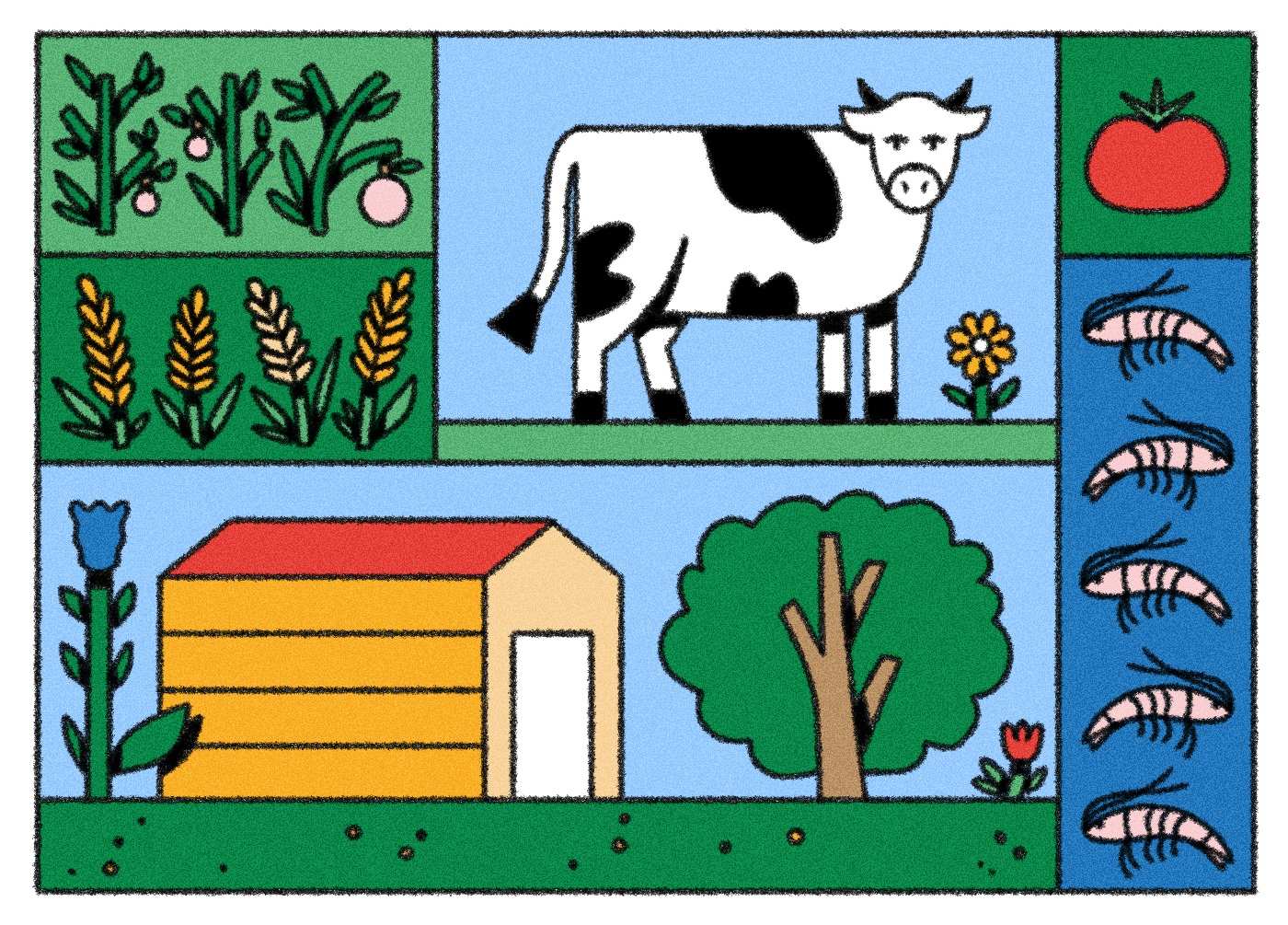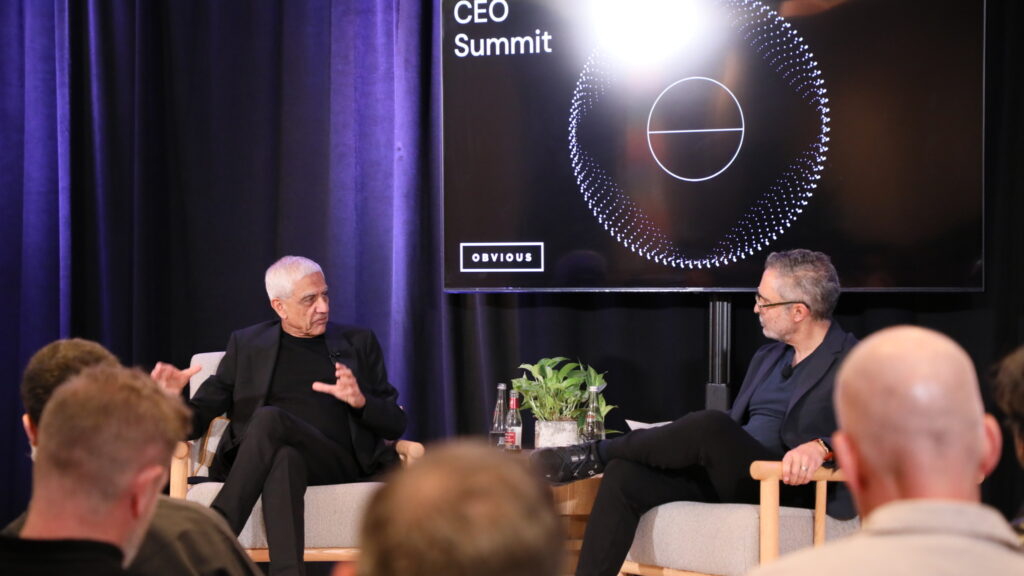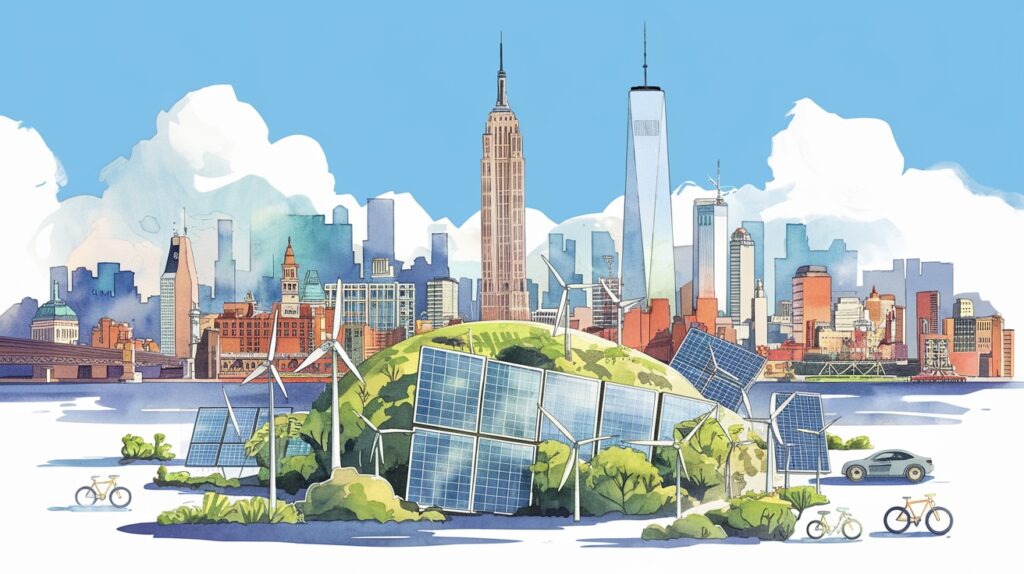Climate Ag’s Moment in the Sun
Andrew Beebe |

Decarbonizing any industry delivers benefits that go way beyond sustainability.
Take automobiles. The transition to EVs lowers carbon emissions. It also reduces our ties to the fluctuating price of oil and the whims of petrostates. And EVs are simply better products—they require less maintenance, are more fun to drive, and can double as generators that back up our homes.
Then there’s power generation. Modernizing the grid with cleaner, safer renewables like wind and solar isn’t just better for the planet. Renewables now offer lower costs and greater reliability as well.
As we spin around the carbon contribution wheel, our next biggest wedge after these two is agriculture. It’s high time for ag to embrace the transformation underway in power generation and mobility.
The next phase
How we cultivate soil, grow crops, and raise livestock has been in a state of tech-enabled evolution ever since the cotton gin’s invention in 1793. The development of the Haber-Bosch process to synthesize ammonia a century later made fertilizer widely available. This process continues to play a massive role in our ability to produce enough calories to feed the world. In fact, access to low-cost food is better than ever due to the industrialization of our food system.
We now need to make this powerful system sustainable.
In its current state, agriculture creates approximately 10 percent of total U.S. greenhouse gas emissions. Most of these emissions come from rice cultivation, soil management, manure, and methane from cattle. Methane is a more potent greenhouse gas than CO2 and 80 times more powerful. Globally, food systems are the primary driver of biodiversity loss.
At Obvious, we invest in companies taking climate action while building more resilient business operations. We are hunting for the next wave of companies modernizing and decarbonizing the ag space in four areas:
1. Fertilizer
We imagine a post-Haber-Bosch world with a much cleaner and more distributed generation of decarbonized fertilizer. Currently, fertilizer is the cement of the food industry–its production emits a whole lot of CO2. How it’s used is also an imprecise science, leading to nitrogen runoff and algae blooms that choke off aquatic life in our waterways. Pivot Bio is a leader in this space, replacing synthetic nitrogen with one made from microbes. Meanwhile, companies like Kula Bio and Nitricity are working on lowering fertilizer’s heavy carbon input with cleaner precision technology for the field.
2. Plant modification
Weatherproof cabbage. Cherry trees that can withstand intense heat. Melons that require less water. Genetic modification of plants—adding new DNA into a plant’s genome to give in new or different characteristics– can help make crops more climate resilient and adaptive. Companies breeding new crops in this space include Syngenta and Pairwise. And Living Carbon is breeding trees that have an enhanced ability to capture more carbon.
3. Animal husbandry
With livestock, the focus is methane reduction–helping cows burp less as they convert grass into food. Companies tackling this include Blue Ocean Barns, Alga Biosciences, and Hoofprint Biome. These companies are working on creating feed using algae and natural enzymes to improve cattle digestion and eliminate methane.
When it comes to aquaculture, companies finding ways to farm fish sustainably and economically include Vertical Oceans. Their indoor shrimp farming model involves recirculating pools with algae, seawater, and bottom-feeding fish to filter out waste. And our portfolio company Xpertsea is using AI to drive productivity and carbon reduction at outdoor shrimp farms.
4. Regenerative ag
Finding ways to farm crops more sustainably while making them more cost-effective is a trend that will continue as buyers of agricultural products, like large CPG companies, meet consumer demand for sustainable goods. The use of biochar as a soil amendment is one example. Rich in carbon from organic waste, when tilled into the soil, biochar creates soil sequestration of CO2, enhancing the planet’s ability to act as a carbon sink while helping plants grow. Mash Makes, Agreena, and Carbo Culture are leaders in this space.
If you’re building a company to modernize and decarbonize agriculture, we’d love to hear from you.



